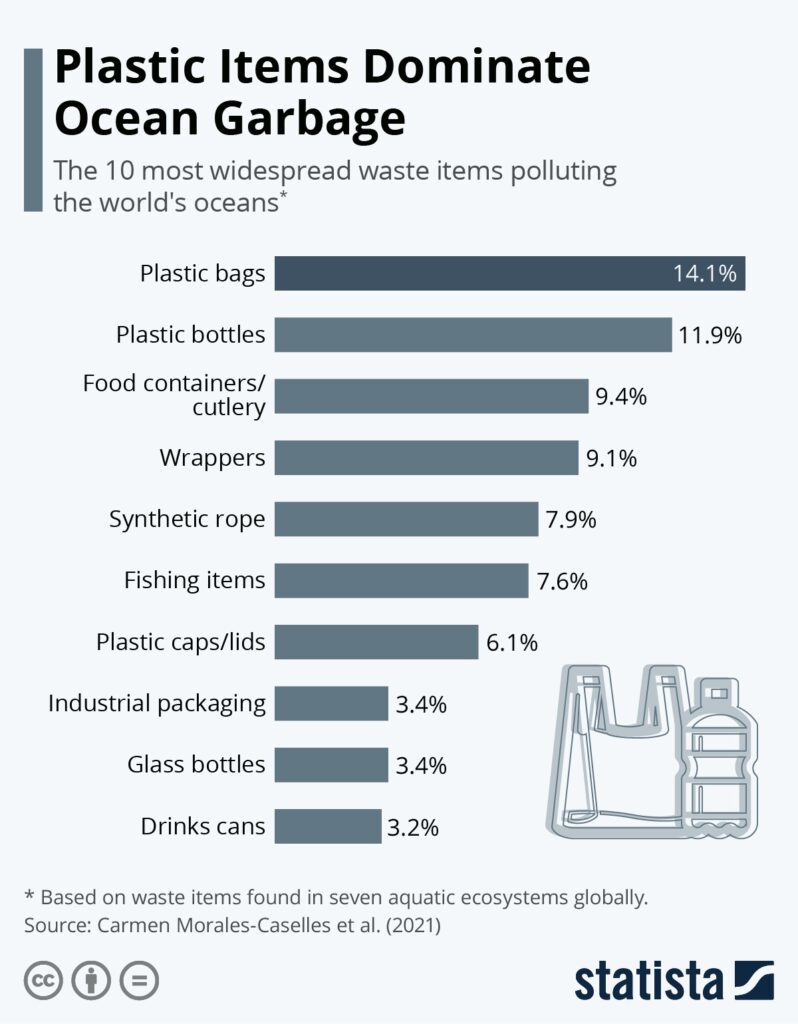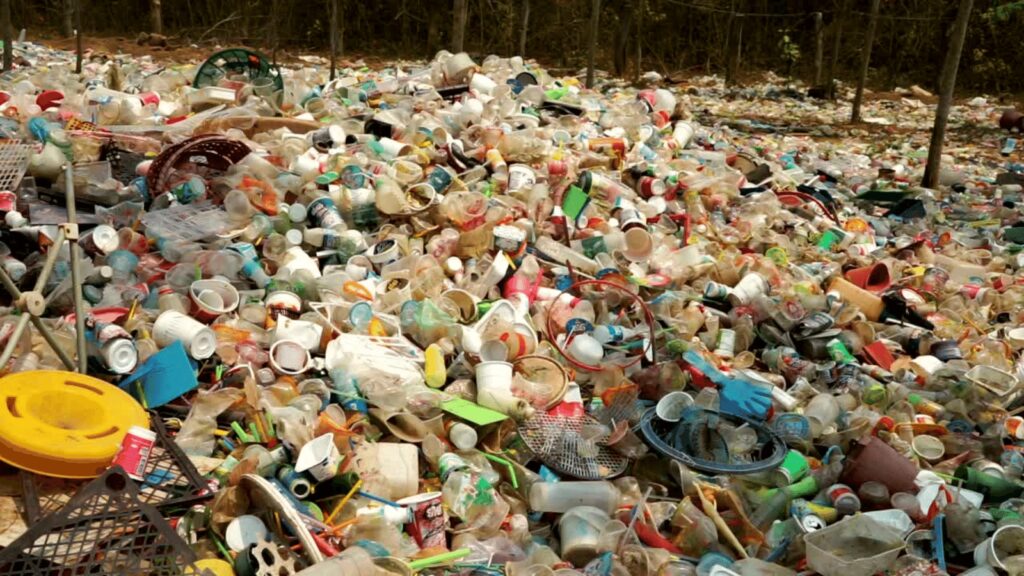Our plastic addiction is too big for recycling to fix.
What is the relationship between marine debris and pollution concerns with the word “convenience”? People flock to convenience stores in East Asia and worldwide, where practically every single product is wrapped in many layers of (mainly single-use) plastic. This is then quickly packaged into extra plastic bags at the checkout, untied, and dumped into the rubbish even before leaving the store. Where is our desire for ease in our daily lives leading the earth and its environment?
RELEVANT SUSTAINABLE GOALS


How are our plastic addictions related to climate change?
More than 90% of plastic is never recycled, and an estimated 8 million metric tons of plastic debris is poured into the oceans each year. At this pace, there will be more plastic in the world’s oceans than fish by 2050.
Much of the plastic that does not make it to a recycling plant ends up in our rivers and oceans. This is not just a concern to the animals and plants whose habitats have become damp garbage patches, but it is also a threat to the climate, as plastic emits greenhouse gases as it degrades. Sunlight and heat cause it to emit methane and ethylene at an increasing pace as the plastic degrades into smaller and smaller fragments.

Furthermore, research indicates that microplastics interfere with the capacity of marine microorganisms to absorb carbon dioxide and release oxygen. At least half of the oxygen on Earth originates from the ocean, which is mainly generated by plankton. These microscopic creatures also collect carbon through photosynthesis, making our ocean a critical carbon sink. Microplastics impact these organisms’ capacity to grow, reproduce and collect carbon. Furthermore, this plankton may hasten ocean oxygen loss by feeding on microplastics.
All We need Now Is The Will
Globally, one million plastic bottles are manufactured every minute, ten million plastic bags are used every minute, and a plastic stirrer is used for roughly 10 seconds before being discarded…So do we really require this level of convenience to support our fast-paced, over-consumptive lifestyles?
Indeed, the term “convenient” in the context of single-use plastics requires urgent reconsideration, particularly in urban settings, where numerous nations top the list in terms of plastics seeping into marine systems.
This prompted me to consider my own plastic impact. Earlier today, at the restaurant, I had a cold dose of reality when I ordered filtered water (knowingly promoting the reduced plastics consumption), but instead, an unsealed plastic water bottle was sent to my table. My reluctance to double-check with the waitress or complain to her is just one example of how we consciously or unconsciously create (or at least contribute to) this collective problem because our society is so addicted to plastic, and as individuals, we have stopped thinking about the consequences.
When we think about plastic as part of our consumption model, we need to realise the it’s not just about not consuming plastic, but it is about changing the systems that are in place. All of us need to realize the inconvenience we cause collectively and to give up the illusion of convenience that plastic misuse provides. Once this is acknowledged, it is not difficult to behave more deliberately and say no to single-use plastics, the majority of which we do not require in the first place.
The article was initially published on 23rd January 2022.
You May Also Be Interested In :
Got Plastics Containers ? Support Tampines Town Council Converting It Into Eco Park Benches



